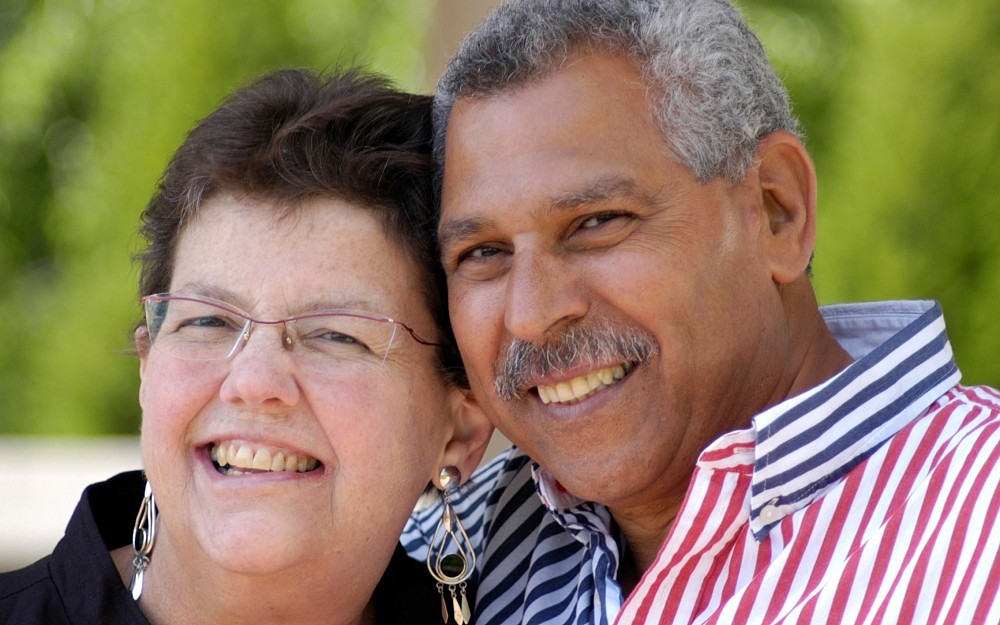
Survivor Says Cancer Screenings Are Important for Quicker Treatment
It all started with a broken tooth.
Lisa Williams, 56, says after beating Non-Hodgkins lymphoma and enduring bouts of bronchitis and pneumonia off and on afterward, she thought she may finally be on the mend.
"However, in spring 2012, I noticed my hearing was getting worse, and I went to UC Health to have a CT scan done, she says. "They found an acoustic neuroma, which is a slow-growing tumor of the nerve that connects the ear to the brain, and they decided to give me three high doses of radiation to shrink the tumor.
Around the same time, Williams said one of the fillings in her teeth fell out, and she started to notice a painful spot on her tongue that she just attributed to her tooth and maybe even ear problems.
"I put off scheduling an appointment with my dentist, though, she says. "May and June of that year were very busy with one son graduating from college and another graduating from law school and moving.
In August, Williams says she felt like she was coming down with bronchitis again and went to see her primary care doctor. She asked him to look at the spot on her tongue and was given some alarming news.
"He told me it might be oral cancer and did a biopsy to confirm that it was, in fact, cancer. He then sent me to Dr. (Keith) Casper, an otolaryngologist with the UC Cancer Institute, she says. "Dr. Casper took one look at it and knew what it was, but he said, Well be able to cure you of this thing.
"So, as scary as that was, it was a relief to know that I would be cancer free and that I wouldnt lose my ability to speak or eat normally.
Casper, performing a procedure that involved going through the side of the neck, was able to remove the cancerous area and to reconstruct Williams tongue using muscle and arteries from her wrist. He was able to save 52 percent of her tongue.
"I was able to come home on Thanksgiving Day of 2012, Williams says. "Although I had to go through rehabilitation, and I had a swallowing coach, Im now able to eat normallyI always have my water with me, though.
"Im alive and improving, and I have a very high chance of full recovery.
Williams says because of the help from Dr. Casper, the nurses and other staff within the institute, shes able to get back to the things she enjoysspending time with her family (she just celebrated her 33rd wedding anniversary with her husband, Ahmed El-Sawaf, gardening and enjoying local festivals. Shes also works at Childrens Hospital Medical Center as a monitor technician.
But she cant forget that with a few additional months notice, her outcomes might have been even better.
"I should have scheduled an appointment with my dentist or doctor immediately after noticing the spot on my tongue, she says. "Its so important to get your teeth cleaned and to get a regular oral exam. Dont assume its nothing. Im thankful that I had such wonderful support that helped make my story successful. I feel blessed.

Keith Casper, MD
Tags
Related Stories
Study links adverse childhood experiences to higher risk of...
May 12, 2025
Children who have been exposed to adverse childhood experiences face an increased risk of homelessness during their childhood, according to a new study from a researcher in the University of Cincinnati’s School of Social Work.
Ohio could soon make breast cancer screenings more affordable
May 9, 2025
The University of Cincinnati Cancer Center's Ann Brown was featured in Local 12 and Cincinnati Enquirer reports on a bill introduced by Rep. Jean Schmidt in the Ohio legislature that seeks to eliminate out of pocket medical expenses such as copays and deductibles associated with supplemental breast cancer screenings.
UC lab-on-a-chip devices take public health into home
May 8, 2025
University of Cincinnati engineers created a new device to help doctors diagnose depression and anxiety. The “lab-on-a-chip” device measures the stress hormone cortisol from a patient’s saliva. Knowing if a patient has elevated stress hormones can provide useful diagnostic information even if patients do not report feelings of anxiety, stress or depression in a standard mental health questionnaire.
